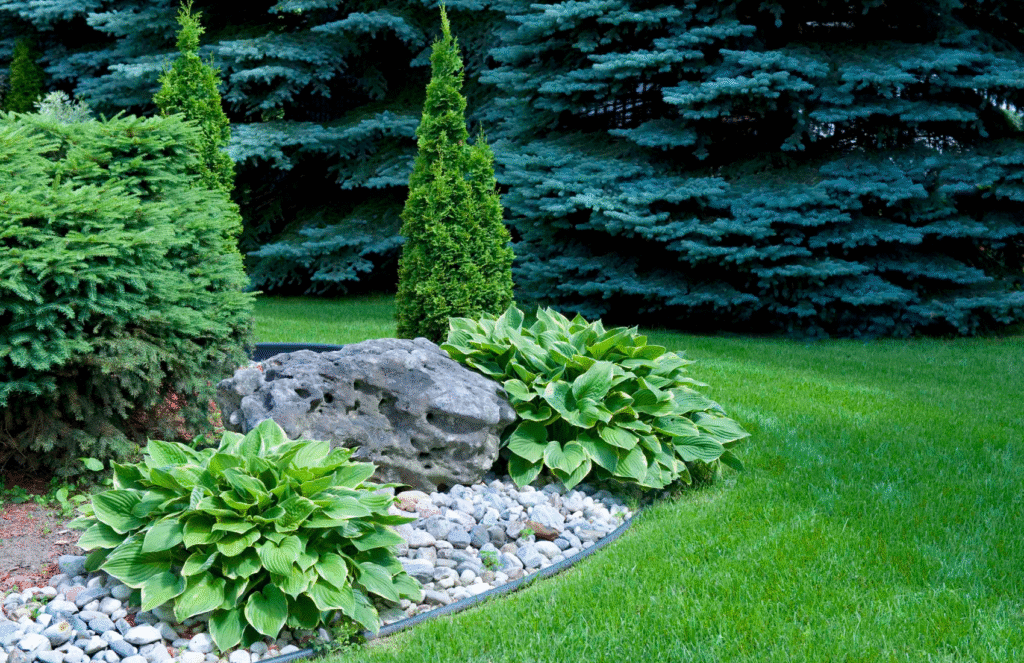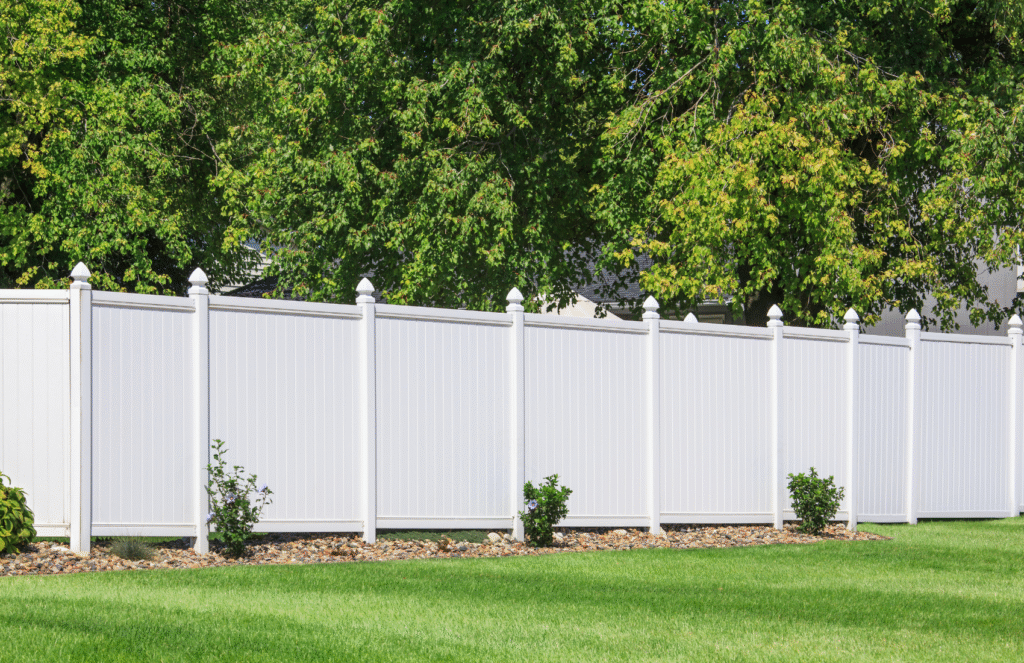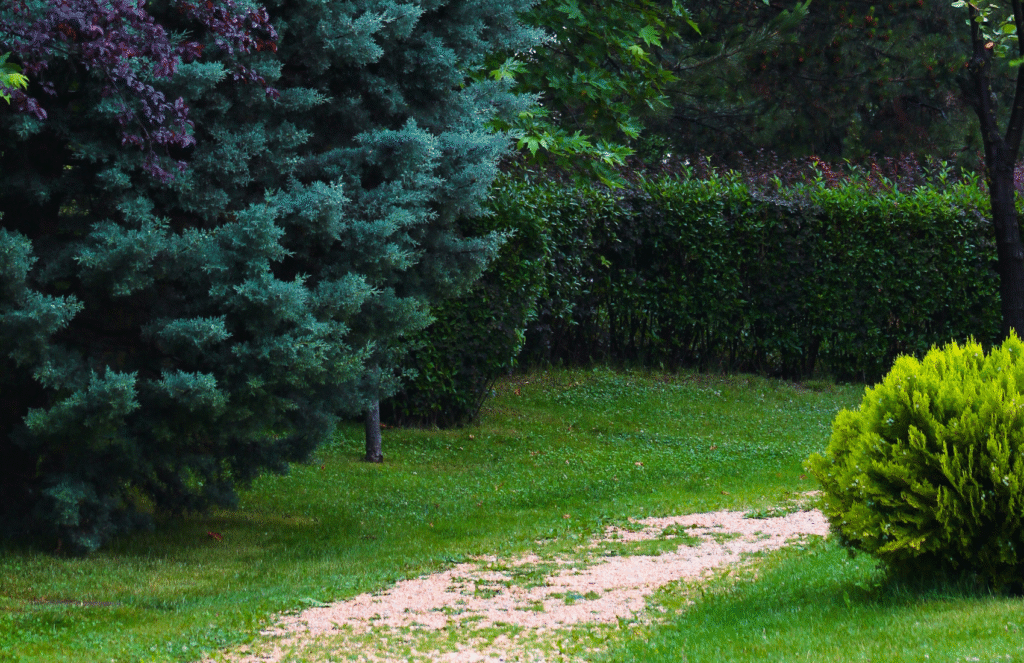Creating Your Private Outdoor Sanctuary: A Complete Guide to Privacy Landscaping Design
Nothing beats the feeling of stepping into your backyard and finding complete privacy—a space where you can relax, entertain, and unwind without worrying about prying eyes or street noise. Yet many homeowners struggle with creating that sense of seclusion in their outdoor spaces. Whether you’re dealing with overlooking neighbors, busy street visibility, or simply want to create intimate gathering areas around your pool or patio, privacy landscaping offers beautiful, natural solutions that enhance both your property’s value and your quality of life.
At Allen Outdoor Solutions, we’ve spent over 15 years helping St. Louis area families transform their yards into private retreats through thoughtful landscape design privacy solutions. In this comprehensive guide, we’ll share proven strategies, plant selections, and design principles that actually work in our Missouri climate—based on hundreds of successful installations we’ve completed throughout the region.
Why Privacy Landscaping Matters More Than Ever
The past few years have fundamentally changed how we use our outdoor spaces. With more time spent at home, homeowners are investing in creating comfortable, private environments where they can truly relax. A well-executed privacy landscape doesn’t just provide screening—it can increase your property value by 15-20% while offering significant mental health benefits through the creation of peaceful, secluded spaces.
Common privacy challenges we encounter in the St. Louis area include:
- Overlooking neighbors with second-story windows or elevated decks
- Street noise and visibility from busy roads
- Pool and patio areas lacking adequate screening for family activities
- Small lot limitations that make traditional fencing impractical
- Seasonal variations where summer privacy disappears in winter
The key to successful privacy landscaping lies in understanding that effective screening requires more than just planting a row of shrubs. It demands a strategic approach that considers sight lines, seasonal changes, maintenance requirements, and integration with your existing landscape.
The Foundation of Effective Privacy Landscaping
Assessing Your Privacy Needs
Before selecting plants or design elements, conduct a thorough assessment of your specific privacy requirements. Walk your property at different times of day and seasons, noting where you feel exposed and from which directions visibility issues arise. Consider whether you need year-round screening or if seasonal privacy from deciduous plants will suffice.
Height requirements vary significantly based on what you’re screening from. Ground-level privacy from neighboring patios might only require 6-8 feet of screening, while blocking views from second-story windows could demand 15-20 feet of mature plant height. Don’t forget about noise considerations—dense plantings can reduce street noise by 6-10 decibels, creating a noticeably quieter outdoor environment.
Professional Site Analysis: Real-World Experience
In our years serving the St. Louis region, we’ve learned that successful landscape design privacy projects start with understanding your site’s unique conditions. Soil drainage, sun exposure patterns, and existing vegetation all impact plant selection and placement decisions.
Take the Henderson family’s recent project in Chesterfield as an example. Their backyard pool area was completely visible from three neighboring homes, making family gatherings uncomfortable. Our site analysis revealed clay soil with poor drainage in the area where they wanted screening, along with morning sun and afternoon shade. These conditions ruled out many popular privacy plants but made it perfect for specific varieties that actually prefer these challenging conditions.
We installed a layered planting of Eastern Red Cedar, Serviceberry, and Spicebush that provided immediate partial screening and will offer complete privacy within three seasons. The key was selecting plants adapted to local conditions rather than forcing inappropriate species into unsuitable locations. Find more options for native plants here.
Top Privacy Landscaping Plants That Actually Work
Evergreen Privacy Champions
Arborvitae varieties remain the gold standard for privacy landscaping in our region. ‘Green Giant’ Arborvitae grows 3-4 feet annually, reaching 15-20 feet in just five years, making it ideal for quick screening. For smaller spaces, ‘Emerald Green’ Arborvitae provides dense screening in a narrower profile, perfect for property line plantings where space is limited.
Eastern Red Cedar deserves special mention as Missouri’s native evergreen champion. These hardy trees thrive in our clay soils and weather extremes while providing excellent year-round screening. They grow 12-18 inches annually and adapt to both wet and dry conditions—perfect for homeowners wanting low-maintenance privacy solutions.
Holly varieties, particularly ‘Nellie Stevens’ and ‘Oakland’ hollies, offer dense evergreen screening with the bonus of attractive berries. These plants excel in partial shade conditions and provide excellent screening at the 8-12 foot range, making them perfect for under-story plantings beneath larger trees.
Deciduous Options for Seasonal Beauty
While evergreens provide year-round screening, don’t overlook deciduous plants for landscape design privacy solutions. American Hornbeam creates dense summer screening while offering attractive fall color and interesting winter bark texture. Serviceberry combines privacy screening with beautiful spring flowers and edible berries, adding multi-season interest to privacy plantings.
Redbud, our beloved native tree, works wonderfully for high-screening needs while providing spectacular spring color. While it won’t offer winter privacy, the dramatic seasonal display often makes it worth including in layered privacy designs.
Fast-Growing vs. Long-Term Solutions
The temptation with privacy projects is to choose the fastest-growing options available, but this often leads to maintenance headaches down the road. Bamboo can provide quick screening but requires careful variety selection—stick to clumping types like ‘Bambusa multiplex’ rather than running varieties that can become invasive.
Hybrid poplars grow incredibly fast (4-6 feet annually) but have shorter lifespans and brittle wood prone to storm damage. We typically recommend these only as temporary screening while slower, more permanent plantings establish.
Professional Tip: Our most successful privacy installations combine 2-3 plant varieties at different heights for layered screening. This approach provides immediate partial privacy while ensuring long-term success as plants mature at different rates. The Arbor Day Foundation has a tree finder that can be helpful.
Creative Privacy Solutions Beyond Plants
Hardscape Privacy Elements
Effective privacy landscaping often incorporates hardscape elements that provide immediate screening while plants establish. Natural stone walls and borders create beautiful, permanent privacy barriers that integrate seamlessly with plant materials. These work particularly well for pool areas where immediate screening is essential.
Privacy fencing integration with landscaping creates more attractive and effective screening than either element alone. By planting evergreen shrubs in front of fencing, you can use shorter, less expensive fencing while achieving greater privacy through the layered approach.
Pergolas and arbor structures provide vertical elements for climbing vines while creating defined outdoor rooms. When combined with fast-growing climbers like hardy kiwi or climbing hydrangea, these structures offer relatively quick privacy solutions with significant visual appeal.
Multi-Functional Privacy Design
Raised garden beds serve double duty as natural barriers while providing space for vegetables or flowers. These work particularly well for screening ground-level sight lines while adding productive garden space to your landscape design privacy plan.
Outdoor kitchen screening has become increasingly important as more families invest in outdoor cooking spaces. Strategic plantings can provide privacy for food preparation areas while creating defined spaces for entertaining.
Water features for noise masking address privacy concerns beyond just visual screening. A well-placed fountain or waterfall can mask neighborhood noise while creating a focal point for your private outdoor space.
Case Study: The Johnson Family Transformation
The Johnson family’s Kirkwood property illustrates how comprehensive privacy landscaping can transform outdoor living. Their original backyard offered no privacy from surrounding homes, making their deck and play area feel exposed and uncomfortable.
We designed a three-phase installation that provided immediate impact while working within their budget. Phase one included fast-growing ‘Green Giant’ Arborvitae along the most problematic sight lines, combined with attractive cedar fencing sections. Phase two added understory plantings of holly and spicebush for layered screening. The final phase incorporated a pergola with climbing vines to create a private dining area.
Total investment was $12,000 spread over two seasons, and the family now enjoys complete privacy while entertaining, with their children playing freely in what feels like a secluded backyard retreat.
Designing Your Privacy Landscape: A Step-by-Step Approach
Phase 1: Planning and Design
Start by measuring and mapping your space, noting problem areas and existing landscape features worth preserving. Understanding sun and shade patterns throughout the day helps determine appropriate plant selections—many privacy plants require full sun for optimal density.
Budget for phased installations if needed. Effective landscape design privacy projects often work better when completed in stages, allowing you to spread costs while giving earlier plantings time to establish before adding additional elements.
Phase 2: Installation Timing
Best planting seasons for privacy plants in the St. Louis area are early fall (September-October) and early spring (March-April). Fall planting allows root establishment during cool, moist conditions, leading to better survival rates and faster growth the following season.
Coordinate hardscape and softscape elements carefully. Install permanent structures like walls or fencing first, followed by major plantings, and finish with smaller accent plants and mulching.
Phase 3: Long-term Success
Maintenance schedules vary significantly between plant types. Arborvitae and other evergreens typically need annual light pruning to maintain density, while deciduous privacy plants may require more intensive seasonal care.
Pruning timing affects screening effectiveness—prune evergreens in late spring after new growth emerges, and deciduous plants during dormancy to maintain maximum seasonal screening.
Plan for replacement plantings. Even with proper care, some plants may fail to establish or suffer storm damage. Having a replacement plan ensures your privacy screening remains effective long-term.
Common Privacy Landscaping Mistakes (And How to Avoid Them)
In our 15 years serving the St. Louis area, we’ve seen several mistakes that consistently undermine privacy landscaping projects:
Planting too close to property lines can create neighborly disputes and limit plant development. Check local ordinances—most areas require plantings to be set back 3-5 feet from property boundaries at mature size.
Ignoring mature plant sizes leads to overcrowding and poor plant health. That cute 3-foot arborvitae will eventually reach 15-20 feet in width—plan accordingly.
Choosing plants unsuitable for local climate results in poor performance or complete failure. Stick with varieties proven successful in Missouri’s challenging weather conditions.
Forgetting about winter screening needs leaves families exposed during months when they might actually spend more time looking out at their yards. If year-round privacy matters, prioritize evergreen options.
Not considering maintenance requirements—some privacy plants require significant annual care to maintain effectiveness. Be realistic about your maintenance capabilities when selecting plants.
Working with Professionals vs. DIY: What You Need to Know
When to hire professionals for privacy landscaping: complex drainage issues, large mature plant installations, coordination with hardscape elements, or when you want guaranteed results within a specific timeframe.
A professional consultation should include site analysis, plant recommendations specific to your conditions, installation timeline, and maintenance requirements. Expect to discuss both immediate and long-term privacy goals along with budget considerations.
Cost considerations vary widely, but budget $3,000-$8,000 for comprehensive privacy screening of a typical suburban backyard. This investment typically returns 15-20% of the cost in increased property value while providing immediate lifestyle benefits.
Questions to ask potential landscape designers: How many privacy projects have you completed in the St. Louis area? Can you provide references from recent clients? What guarantees do you offer on plant materials and installation work?
Red flags when choosing contractors: Extremely low bids (often indicating poor plant quality), door-to-door sales approaches, demands for full payment upfront, or inability to provide local references.
At Allen Outdoor Solutions, our consultation process begins with an on-site evaluation of your privacy needs and site conditions. We provide detailed proposals showing plant selections, mature sizes, installation timeline, and maintenance requirements, ensuring you understand exactly what to expect from your landscape design privacy investment.
Creating Your Private Paradise
Effective privacy landscaping transforms your outdoor space into a true extension of your home—a place where you can relax, entertain, and enjoy nature without feeling exposed or uncomfortable. The key lies in thoughtful planning that considers your specific site conditions, privacy needs, and maintenance preferences.
Remember that the best privacy solutions develop over time. While some screening can be achieved immediately through strategic hardscape elements and fast-growing plants, the most beautiful and effective privacy landscapes mature and improve over several seasons.
Whether you choose to tackle privacy landscaping as a DIY project or work with professionals, focus on creating solutions that address your specific needs while enhancing your property’s overall beauty and value. Your private outdoor sanctuary awaits—it just takes the right combination of planning, plant selection, and patience to achieve.
Ready to transform your outdoor space into the private retreat you’ve always wanted? Contact Allen Outdoor Solutions today for a free consultation. We’ll assess your property’s unique conditions and develop a customized privacy landscaping plan that delivers beautiful, effective screening tailored to your family’s needs and budget. Creating private outdoor sanctuaries for St. Louis families since 2008—let us help you discover what your backyard could become.


